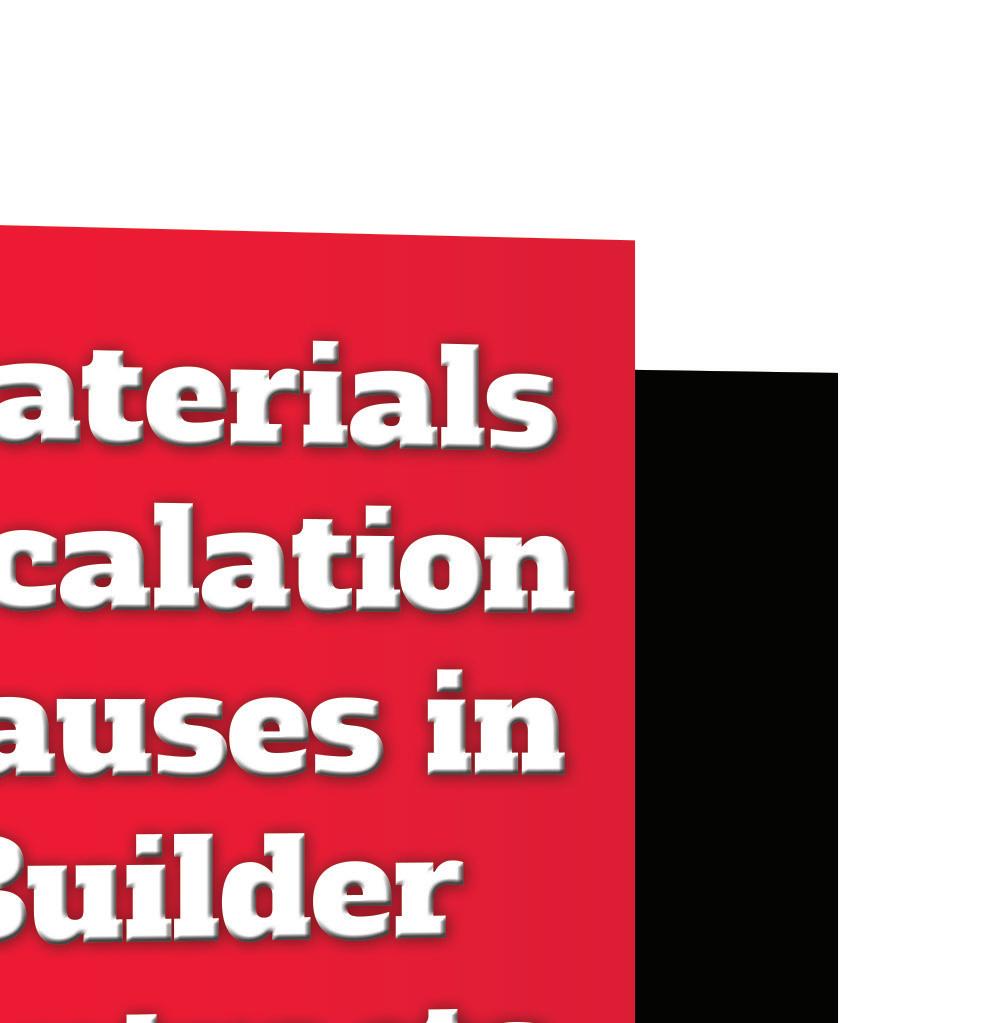
8 minute read
Sticker Shock




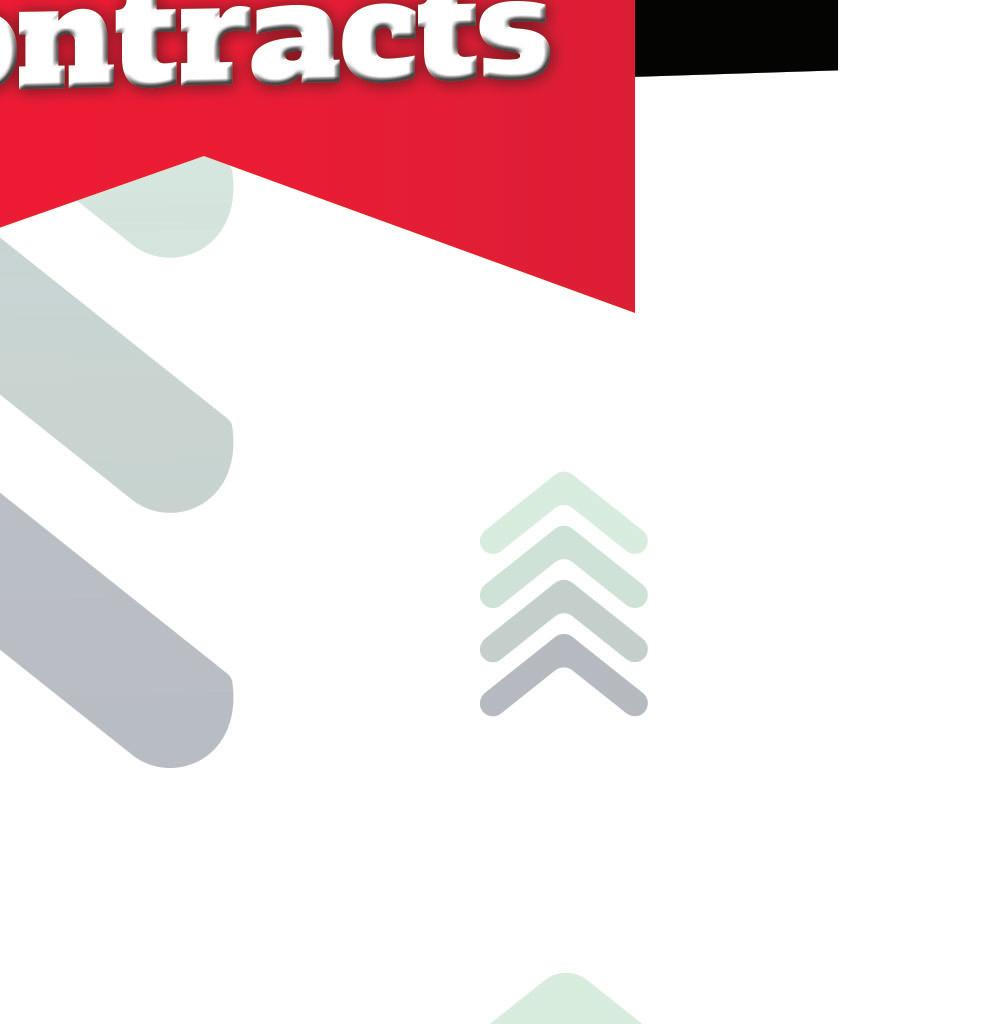



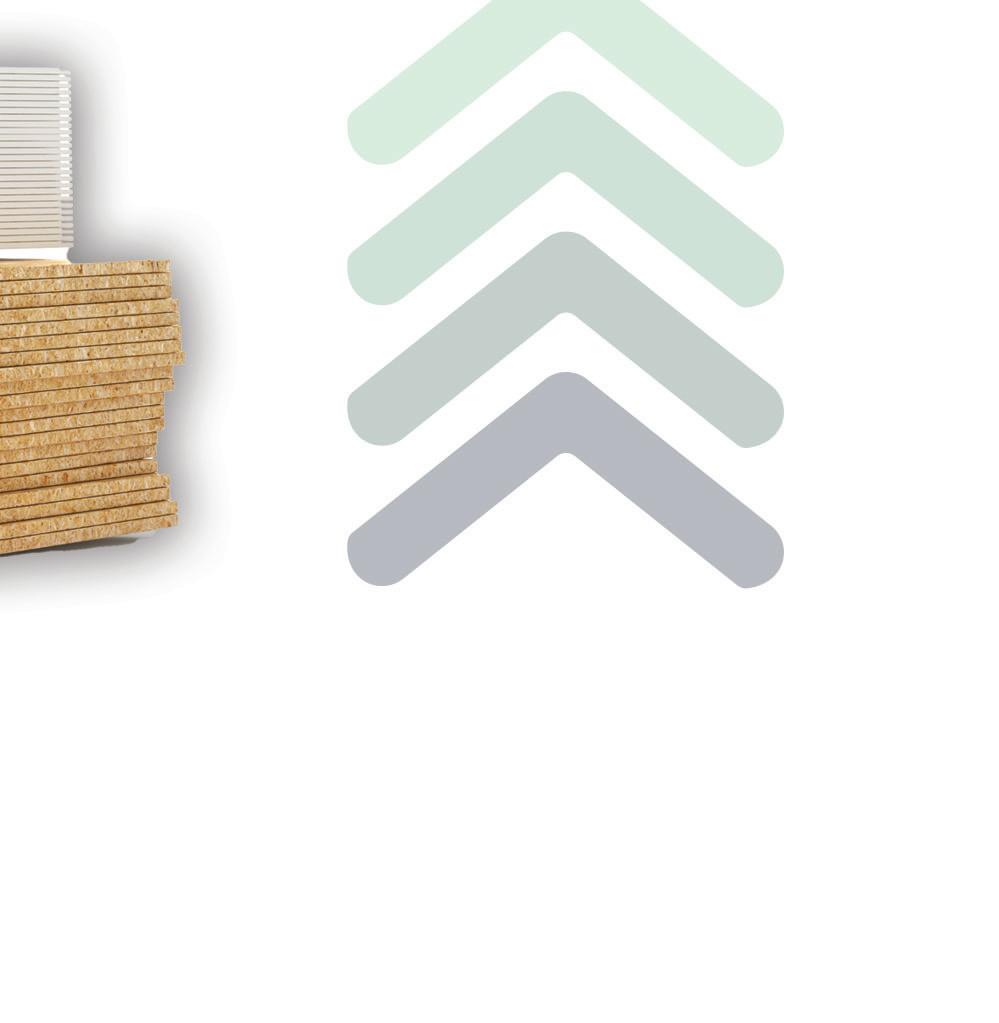
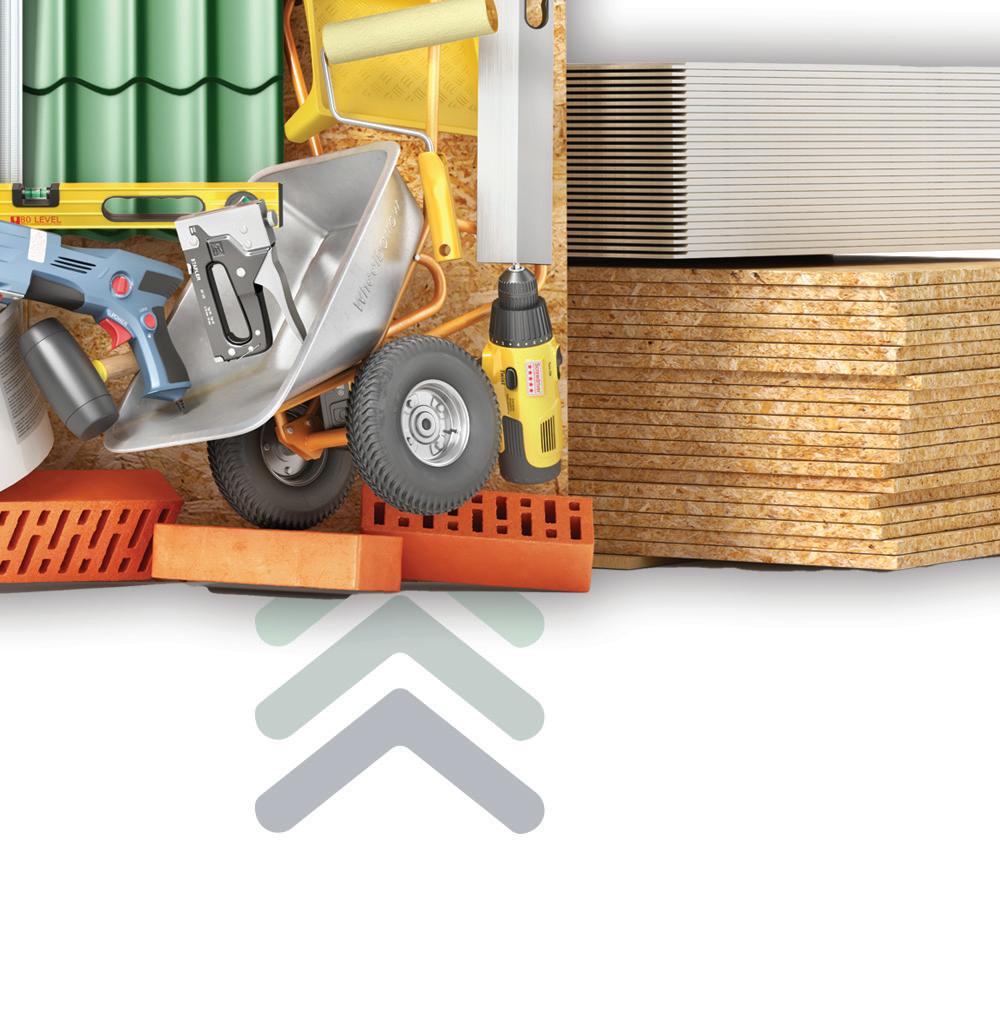
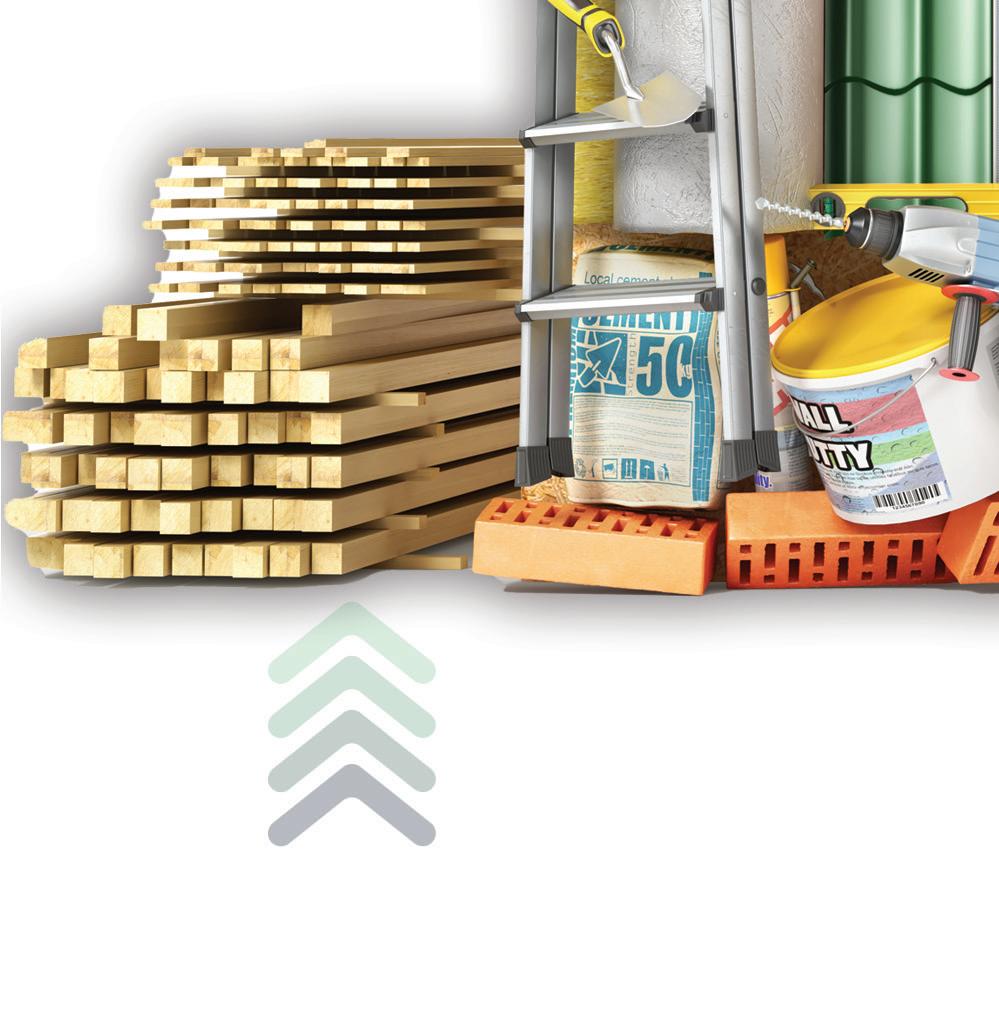
Materials escalation clauses in building contracts allow for price adjustments or cancellations in the event of extreme increases in material prices. While they are rarely invoked, they are not new, and they serve a purpose in the market. These clauses appear to be enforceable, and parties should read and understand them before signing. By Rusty Adams
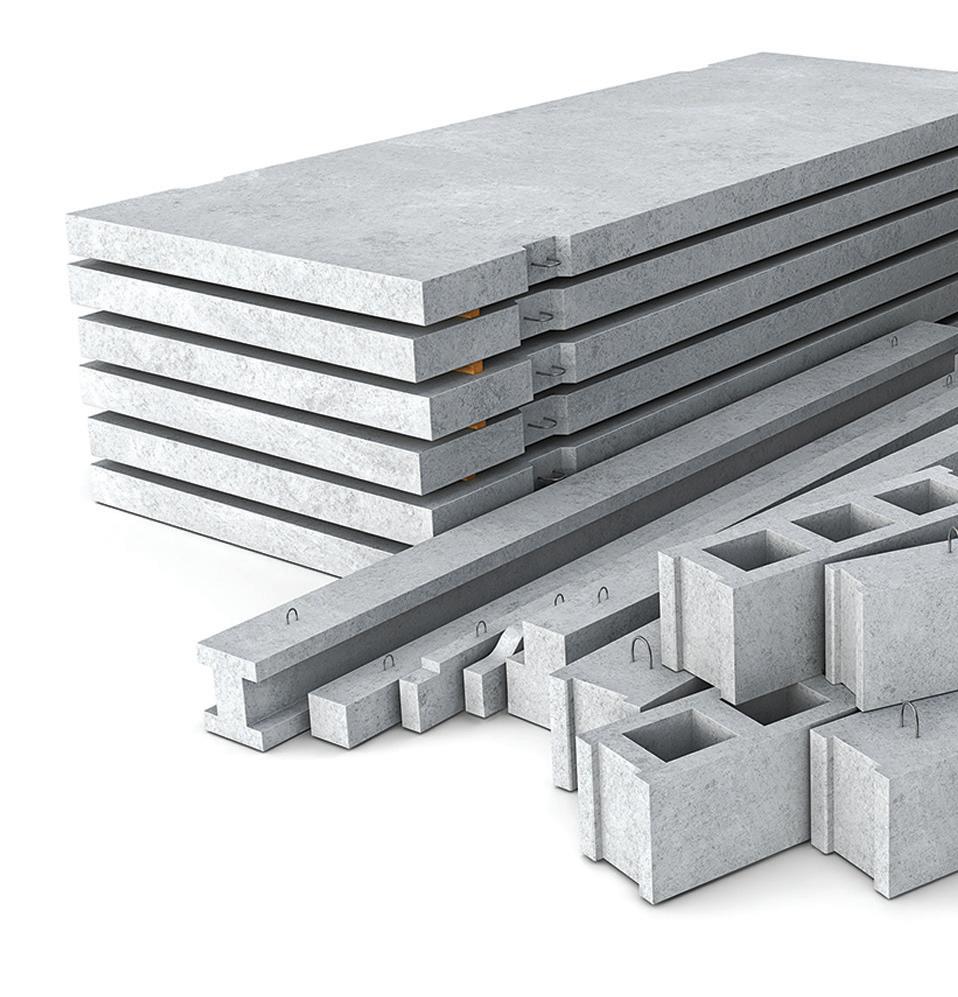
A popular meme these days shows an online want-ad that purports to offer a 4-ft x 8-ft sheet of plywood in trade for an expensive truck or sports car. “No low-ballers,” it says. “I know what I have.” Another features a well-dressed couple eating a white tablecloth meal in the aisle of an indoor lumberyard. The tagline: “Take me somewhere expensive.”
Indeed, prices for construction materials have gone through the roof like never before, creating problems for property owners as well as those in the construction industry. As a result, materials escalation clauses have become a topic of conversation in the news and one that deserves a fair examination.
The news stories tend to go like this. A sweet couple entered into a contract with a greedy builder to build a home. Then the builder raised the price and/or canceled the contract. The home was sold to someone else, leaving the couple heartbroken. The contractual clauses are characterized as “obscure,” “surprise,” or “fi ne print,” or as providing for a “surcharge.” It’s easy to empathize with the buyers, especially when so many people live in homes, but relatively few build them. But perhaps there is more to the story than meets the eye.
An escalation clause is a provision in a contract that allows for a price adjustment if certain conditions change.
For instance, leases may increase the rent to keep up with For instance, leases may increase the rent to keep up with expenses or infl ation. Another type of escalation clause expenses or infl ation. Another type of escalation clause increases a buyer’s offer in order to compete with other offers on the same property. A materials escalation clause is a provision in a contract between a buyer and a builder providing that the price may increase if the price of building materials increases.
Materials escalation clauses in construction contracts are nothing new. Many builders—commercial and residential—have included them in their contracts for decades. Actually invoking the clauses, however, has never been common. Many builders chose—and still choose—to eat losses if they are small enough rather than use the clause to raise the price. But skyrocketing costs of lumber and other building materials, historically high home prices, supply chain issues, infl ation, and the recent pandemic have created the perfect storm for things to get out of hand quickly. While it’s still somewhat rare to invoke the clause, some builders are left with no choice.
When it comes to the business of building, in the words of fi ctional businessman Navin R. Johnson, “It’s a profi t deal!” Builders who build at a loss don’t stay around long. As with most contractual provisions, these clauses are all about foreseeing and allocating risk among the parties. When a contract contains a materials escalation clause, the buyer and the builder are allocating between themselves the risk that the cost of materials will change between the signing of the agreement and the completion of the project.
What’s in a Materials Escalation Clause?
Contracts vary, but materials escalation clauses usually contain some common elements.
First, the clause will list certain building materials or categories of materials to which the provision applies. Examples might be lumber, plywood, drywall, concrete,






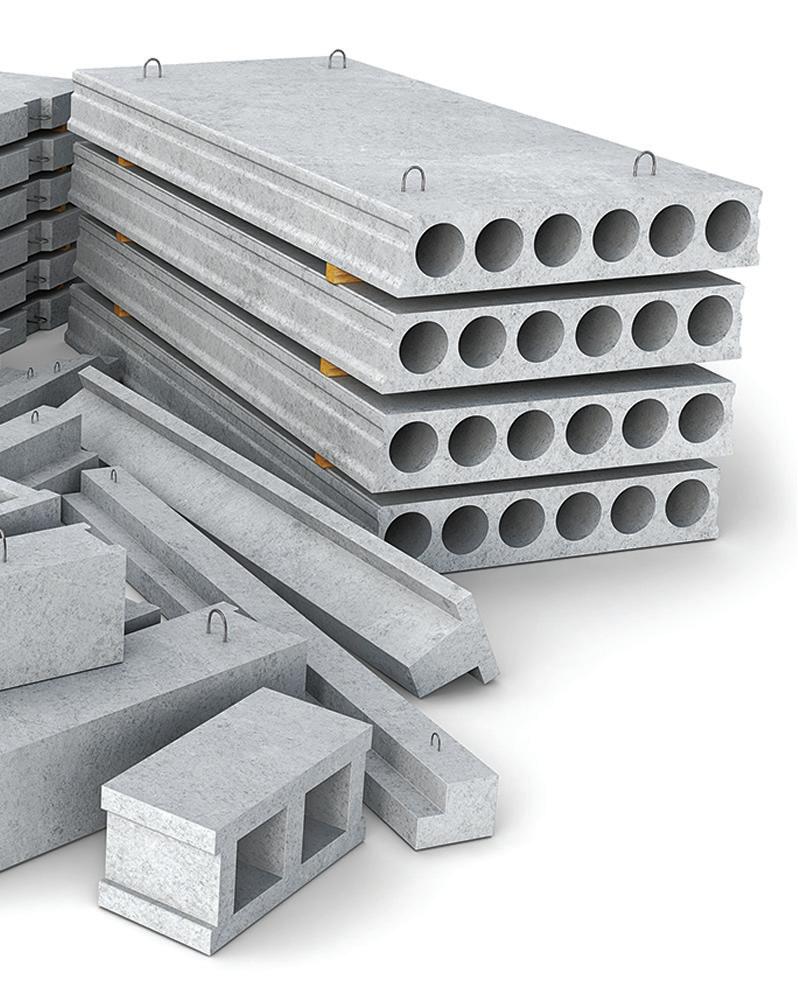



steel, roofi ng materials, or appliances.
Second, there will be a defi nition of what triggers the escalation. For example, an increase in the price of those materials over a certain those materials over a certain percentage might trigger the provision. The contract might provision. The contract might measure the increase by indimeasure the increase by individual products, categories of vidual products, categories of products, or all products together. products, or all products together. The clause should also establish a The clause should also establish a reference point from which the increase reference point from which the increase will be measured. The lower the trigger will be measured. The lower the trigger percentage, the more risk is allocated to the percentage, the more risk is allocated to the buyer, whereas a higher trigger percentage exposes buyer, whereas a higher trigger percentage exposes the builder to more risk.
Finally, the clause will state how the price increase for the buyer will be calculated. Often, the price change is simply passed directly to the buyer. Parties to the contract should pay particular attention to how the trigger points and additional charges are calculated. These terms should be defi ned as clearly as possible to avoid confusion.

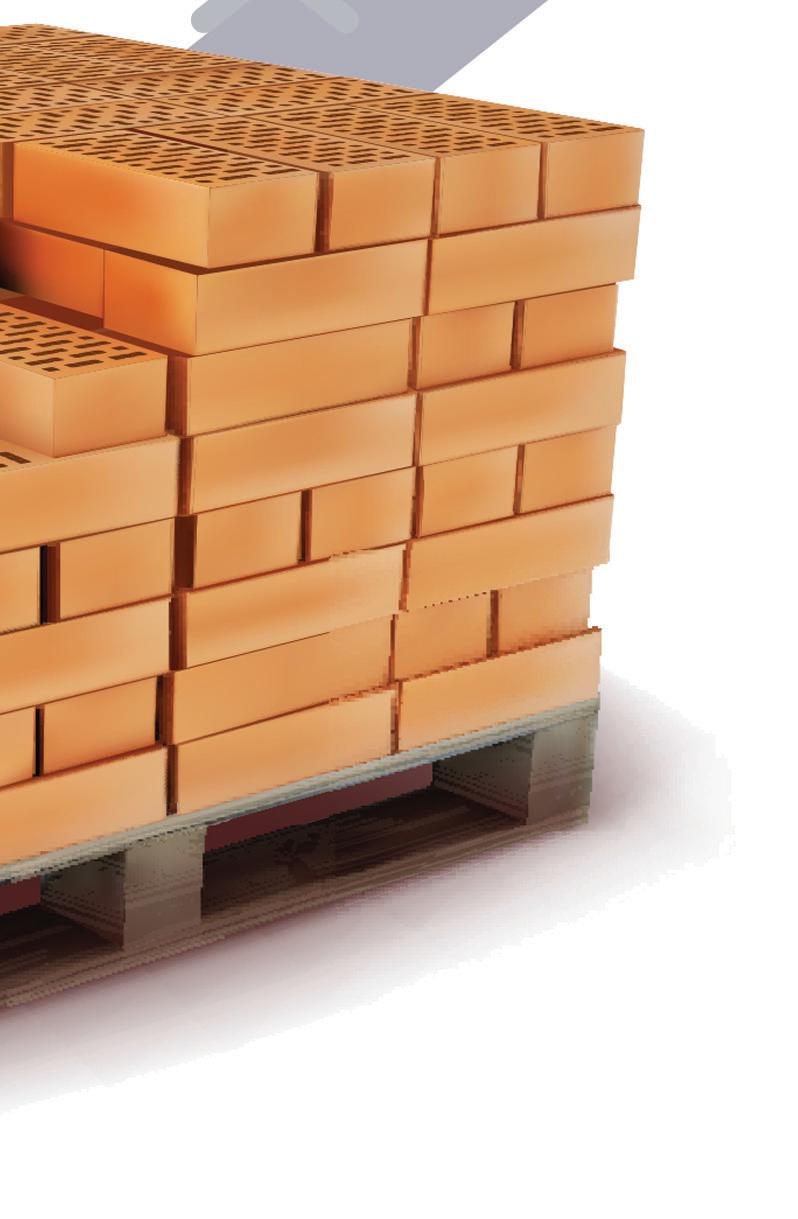
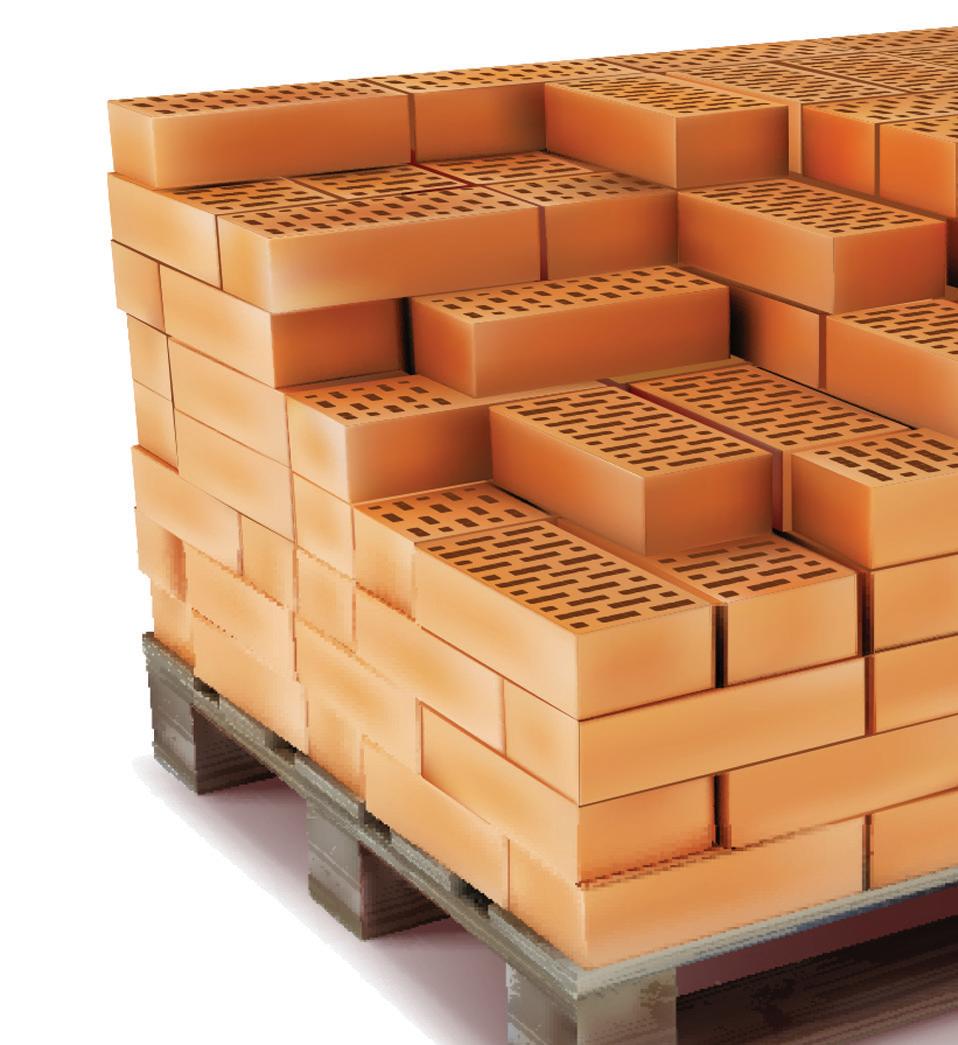

Other Points to Consider



As prices rise and materials escalation clauses are more commonly invoked, other questions and concerns arise.
The fi rst is whether such a clause would be enforced by a Texas court. Despite a dearth of case law directly addressing the subject, the answer appears to be yes. Texas courts generally hold parties to the agreements they make, with a few exceptions, none of which appears to be present here.
Secondly, these clauses are often found in contracts entitled “Fixed Price Contract,” yet when this clause is included, the price is not exactly fi xed. Depending on how the materials escalation clause is written, there may not be a lot of certainty as to the price. At some point, the so-called fi xed-price contract may essentially become a cost-plus contract.
These issues are particularly important because lenders rely on the contracts when making lending decisions. Because of the price uncertainty in a cost-plus contract, lenders may be reluctant to make loans on them. Without the loans, most of these transactions don’t go.
Additionally, appraisals are often based on the fi nished home’s market value, not necessarily its contract price. In an atmosphere of rapidly rising construction costs, it’s possible the lender will not make the necessary loan based on the appraisal. Even if the buyer is able to pay the difference in cash, the buyer’s fi nancial position after doing so may prevent him from qualifying for the loan.



What’s the Alternative?
There are alternatives to materials escalation clauses, but they have drawbacks that may make them less than satisfactory solutions.
One alternative is for builders to order the necessary materials immediately or even before the contract is signed. The drawback is that many builders lack the cash fl ow to do so and would need a higher initial deposit from the buyers, many of whom also lack the cash fl ow to do so.
Another option is a cost-plus contract. As mentioned before, lenders do not favor cost-plus contracts. Additionally, they come with bookkeeping headaches (and costs) for builders.
One other alternative is for the buyer to buy a home that is complete or near complete, or for the builder to fi nish the house at a known cost and then put it on the market. While this would reduce the risk of price swings, it would also essentially do away with the custom and build-to-suit markets.
To avoid unpleasant surprises, buyers should always read the contract. In fact, anyone who signs any contract should read it and be aware of its contents before signing. Under Texas law, a person who signs a contract is legally deemed to know what it says. While the materials escalation clause may be a less than ideal solution, it serves an important purpose and appears to be here to stay.
Nothing in TG should be considered legal advice. For advice on a specifi c legal situation, consult an attorney.
Adams (r_adams@tamu.edu) is a member of the State Bar of Texas and a research attorney for the Texas Real Estate Research Center at Texas A&M University.



